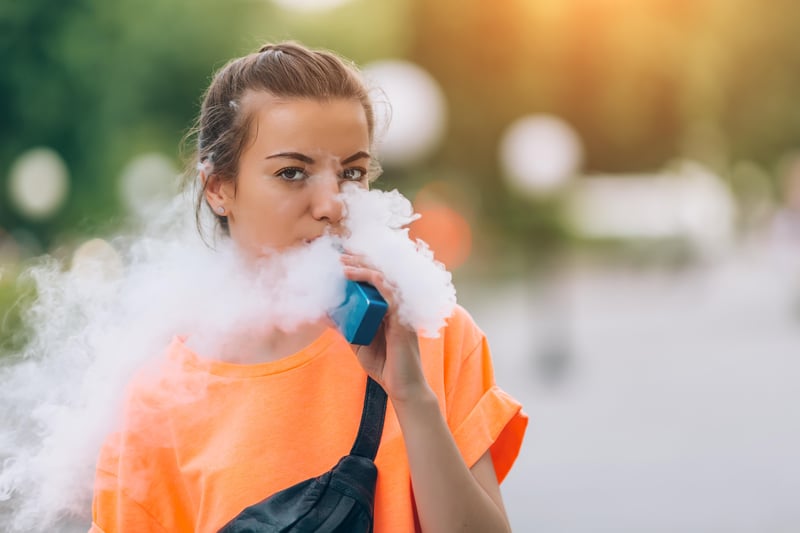Due to a recent change in our pharmacy software system, the process for submitting refill requests online has now changed.
Our previous mobile app and your current login credentials will no longer work.
Please click the Patient Portal tab to begin the new process.
Thank you for your patience during this transition.
Manténgase sano!

- Cara Murez
- Posted December 20, 2022
Vaping May Affect Lungs' Lubricant, Making Breathing Tougher
Researchers have uncovered another health hazard associated with vaping.
Inhaling vape products may damage a critical layer of the lungs called surfactant. Made of lipids and proteins, surfactant makes it possible to breathe with minimal effort by reducing surface tension. Researchers say breathing would require more effort and possibly mechanical help without this layer.
"Vaping continues to be popular, but not much is known about what happens with the aerosol when it enters the lungs," said researcher Ruud Veldhuizen, a scientist at the Lawson Health Research Institute in Ontario, Canada.
"We realized that the first thing the vapor aerosol comes in contact with in the lungs is pulmonary surfactant, which is an area our team specializes in," he said in an institute news release.
The investigators studied the effects of vaping by placing a film of surfactant inside a syringe, and then using a vaping device to push aerosol into the syringe.
The vapor could then directly interact with the surfactant. Researchers mimicked inhaling and exhaling vapor into the syringe 30 times to resemble a standard vaping session.
"In particular, we were looking at the surface tension in the surfactant," said co-researcher Emma Graham, a master's student at Western University's Schulich School of Medicine and Dentistry in Ontario. "After vaping, we saw high surface tension, which suggests the surfactant would not be as effective at supporting proper lung functioning."
The team further studied the effect of vaping using different devices, flavors, additives and nicotine.
"Nicotine didn't have any worse effects on surface tension of surfactant compared to other e-liquids, but some flavorings, like menthol e-liquid, did," Graham said in the release.
Veldhuizen said the findings could indicate why people that vape have a susceptibility to develop lung injury, including those with respiratory viruses such as COVID-19.
"We would like to get this information out there so that people know vaping may be damaging to the lungs," Veldhuizen said. "As a next step, we hope to further investigate the effects of vaping on the lungs and how we can treat resulting injury."
The findings were published recently in the journal PLOS ONE.
More information
The U.S. National Institutes of Health has more on the effects of vaping.
SOURCE: Lawson Health Research Institute, news release, Dec. 14, 2022







